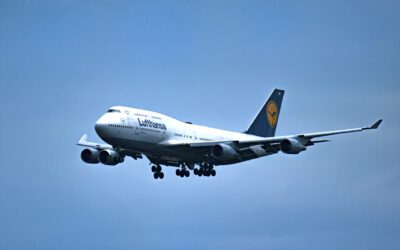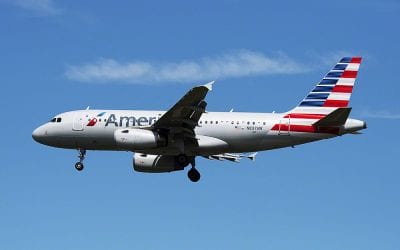How do you turn sour grapes into a rare and expensive vintage? Ask your favorite airline — for over a decade they’ve been fermenting profits, ever since the fuel surcharges were no longer needed to cover oil price spikes.
These surcharges aren’t subject to corporate discounts, travel agency commissions or government oversight. When oil prices go down and stay down, the profits keep piling into airline coffers.
Need another notch forward on your Indignation Meter? Think about those nonrefundable tickets. With all those nonrefundable fuel surcharges. If the traveler doesn’t fly, the airline keeps the surcharge payment. And with occupancy levels these days, it’s more likely than not the seat will be resold and another fuel surcharge pocketed.
Foreign and domestic carriers frequently tack on fuel surcharges of several hundred dollars for US-to-Europe flights. Low-season economy base fares are often less than the cost of the fuel surcharges! Curiously, most Asian airlines and carriers on trans-Pacific routes rarely add the surcharges.
Here are a few examples to showcase the issue.
A United Airlines nonrefundable discount business class fare from San Francisco to Hong Kong (April 2016) is posted as USD $5806 base fare, including all taxes and fees with a fuel surcharge of only $49.20.
For the same airline, fare class and dates but traveling to London instead, the inclusive base fare is $5639 not including a fuel surcharge of $904.
Interesting fun fact: mileage from San Francisco to Hong Kong is approximately 6900 miles. From San Francisco to London, with the exponentially higher fuel surcharge, is a distance of around 5300 miles.
United Airlines isn’t alone in its irrational fuel surcharge logic. American Airlines offers a business or economy class flight from Dallas-Fort Worth to Tokyo that includes a round trip fuel surcharge of $172. Need that American flight from DFW to Frankfurt instead? Congratulations, you have just earned a fuel surcharge of only $516, for considerably less mileage flown than on the Tokyo trip.
An Associated Press article by Alicia A. Caldwell dated March 5, 2011, details a US Department of Justice antitrust investigation against 21 global carriers; no major US carriers were charged. The investigation was successful because two airlines, Lufthansa and Virgin Atlantic, decided to work with the DOJ after a series of very public airline office raids in Europe by the FBI and their international counterparts. According to Ms. Caldwell’s article, 19 executives were charged, with four sentenced to lengthy prison terms, and the 21 carriers paid more than $1.7 billion in fines.
And now it’s US airlines’ turn in the spotlight. The Department of Justice made public in July that it is requesting information from certain companies as part of an antitrust investigation into whether airlines are engaging in ‘unlawful coordination’ by slowing growth to keep planes full and prices high.
It is true that airlines can charge what they want and break prices down as they please, as long as everything is disclosed. Travelers always have the option of one airline over another or even choosing another mode of transportation.
US carriers may finally squeeze a few dollops of ethical ticket pricing into their business models as the DOJ investigation moves forward. It might not be widespread indignation over the ‘fuel surcharge’ that leads to fairer pricing and a sudden outburst of corporate morality, but as Eliot Ness might have said after Al Capone’s conviction: “It doesn’t matter if they get there in a limousine or riding a porcupine, as long as they get there.”
Janice Hough is a California-based travel agent a travel blogger and a part-time comedy writer. A frequent flier herself, she’s been doing battle with airlines, hotels, and other travel companies for over three decades. Besides writing for Travelers United, Janice has a humor blog at Leftcoastsportsbabe.com (Warning, the political and sports humor therein does not represent the views of anyone but herself.)



